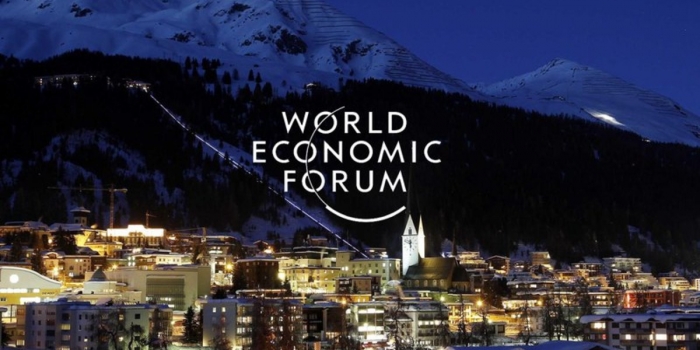RGE Bankers’ Forum 2019
RGE held its inaugural Bankers’ Forum on 24 May 2019 at the Fullerton Hotel in Singapore, welcoming almost 200 stakeholders from more than 50 financial institutions for a morning of...

Latest updates on what's happening in RGE Group

While attending the World Economic Forum (WEF) annual meeting in Davos, Switzerland, last month, Anderson Tanoto, Managing Director, RGE, spoke to Indonesian TV Station Berita Satu to share his perspectives on economic development – globally and in Indonesia – and on continuing moves towards a fair and equitable energy transition. Both were key topics for discussion among global business and political leaders at the annual summit.
2022 was a good year for Indonesia, said Anderson, pointing to the country’s GDP growth of more than 5% last year. “There are many concerns about rising interest rates, and how the world economy will stretch. However, with the many discussions that we had at the World Economic Forum in Davos, people are quite optimistic. He also shared his views on how a fair and sustainable energy transition might be achieved. “We have to transition more to renewable energy and reduce the use of fossil fuels. But this is difficult, because the costs for the transition are very high and the transition takes time. Thus, our challenge for the next 10 years is how we can finance it and can help this transition in a just and equitable way”.
Anderson further expressed his hopes for Indonesia to become a leader in Asia. “My hope is for Indonesia to become a leader not only in South East Asia, but also throughout Asia. Indonesia is a big country, with more than 260 million people, and lots of potential”.
Separately, in a short video interview with management consultants Bain & Company, Anderson spoke about the importance of leadership in changing times. “There will be uncertainty in the coming year, with geopolitical tensions all around the world. For leaders, our goal is to find opportunities in these challenges. I think the next 12 to 24 months will be a fantastic time when valuations drop, and companies can consolidate. It is also important for leaders to communicate and lead not only from the mind but from the heart. People need to know they are with a leadership that has things under proactive control”.
At #WEF23, we caught up with Anderson Tanoto, Managing Director of RGE, to find out how he's meeting the challenges facing business leaders today. https://t.co/TPFyUe7CbM#BainatDavos pic.twitter.com/oTBlmcGzV7
— Bain & Company (@BainAlerts) January 18, 2023
An excerpt of the Indonesian TV Station Berita Satu clip with Anderson is as follows:
Q: This year’s World Economic Forum meeting discussed several important issues. These include the direction of the world economy amidst of high inflation and benchmark interest rates. The international world has a positive view of Indonesia, what is your take on the economic growth?
A: 2022 was a good year for Indonesia, GDP grew by more than 5% and 2023 is a year to watch. There are many concerns about rising interest rates, and how far can the world economy stretch. However, based on the many discussions that we had at the World Economic Forum in Davos, people are cautiously optimistic. While interest rates are rising, people talked about whether they can go any higher. The rates are already very high, so are unlikely to go up again in 2023. Secondly, many countries have inflation under control. And thirdly, even supply chain disruptions around the world are more stable. So our hope is that in 2023, even though there is a risk of a recession, the recession will not be as bad as we expected.
Q: The energy transition, as part of efforts to create a greener and sustainable economy, is one of the main discussions this year at the World Economic Forum in Davos. What are your views on how to create a fair and sustainable energy transition?
A: If we take a look at Indonesia, the problem with sustainable energy is that currently 80% of energy needs are fossil fuel based, and only 20% of our energy consumption is from renewable sources. Among other things, Indonesia has to transition more to renewable energy and reduce its reliance on fossil fuels. This is easier said than done because the costs for the transition are very high and the transition takes time. Thus, the challenge for the next 10 years is how Indonesia can finance this transition and can help it (the transition) in a just and equitable way. That means, fairly and systematically.
Q: There are a lot of expectations in Davos on how the meeting of state and government heads, as well as business leaders at WEF can bring about benefits to Indonesia. How do you think the WEF will aid Indonesia?
A: From the discussions at the WEF, my hope is for Indonesia to become a leader in the region. A leader not only in South East Asia, but also throughout Asia. Indonesia is a big country, with more than 260 million people, and lots of potential, especially for the sustainability agenda. It is not sustainable if it is only pushed by foreign parties. With that, it is my hope that the Indonesians can take the opportunity at WEF to position the country as a leader and also to advance important agendas for Indonesia.